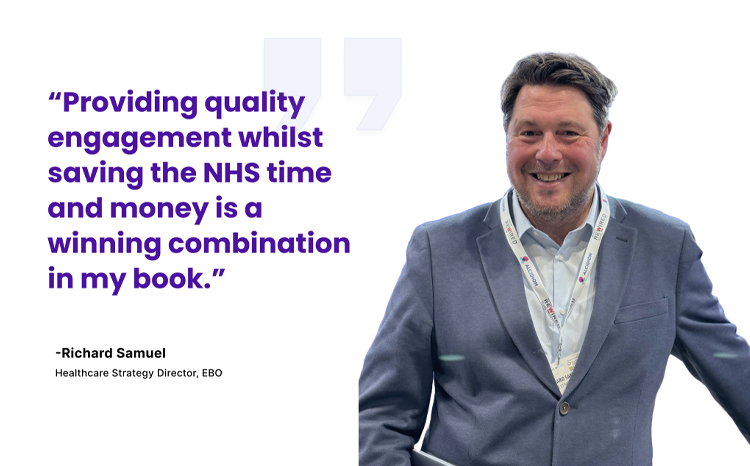NHS IT like a “1950s bank” – Swindells
- 5 July 2016

NHS England’s new commissioning and IT boss has likened the public health system’s technology to a 1950s bank, and says it is lagging behind many comparable countries.
In his first major speech in the shift to NHS England, Matthew Swindells told an audience at the King’s Fund Digital Health and Care Congress that the NHS needed to play catch up on IT.
“I think we do primary care pretty well in this country. Everything else you could stand on the white cliffs of Dover and throw a stick and hit any country that does it better,” he said.
“We are just way behind at the moment and we ought not be. There is really no excuse for it.”
Swindells said IT projects project would no longer be funded for their own sake. Instead funding would be available for “change projects” that require new technology and information to improve quality and efficiency of care.
“If you’ve just come up with an exciting new way to spend more money you’ve come at the wrong generation. You need to be able to drive that change through your projects.”
He also told NHS organisations to “stop being quite so parochial”, to allow innovation to flourish and scale.
“We have a generation of young clinicians writing apps to solve things that we have systemically failed to solve over the years. If we don’t tap into that…. then we are missing out on a huge resource.”
Swindells is NHS England’s new national director for commissioning operations and information. He has come to his new job from a previous role as a senior executive at IT supplier Cerner; but has headed up NHS IT before, as interim chief information officer following the departure of Richard Granger, who set up the national programme.
In this role, he carried out a review of health informatics that put a new focus on the ‘clinical 5’ systems that were supposed to get clinicians re-engaged with NHS IT.
His arrival at NHS England is part of a wider shake-up of its leadership following the departure of Tim Kelsey, the director of patients and information, last year and Beverly Bryant’s shift to Health and Social Care Information Centre. NHS England is still seeking to fill two newly created senior digital management roles beneath Swindells.
His arrival also comes as NHS organisations submit their Sustainability and Transformation Plans and Local Digital Roadmaps, which are meant to offer local solutions within the Five Year Forward View, which aimed at creating an improved and financially sustainable healthcare by 2020-21.
In a do-nothing scenario, the NHS funding gap is expected to widen to £30 billion by 2020-21.Swindells said to achieve the Five Year Forward View goal, the NHS would need to up its productivity by 3% a year, which could not be achieved by simply working harder.
“I believe that innovation and technology are the lever to that. That’s the piece that has changed from other times that we have tried to make these changes.”
Swindells said there needed to be both greater flexibility, at a patient level, and greater standardisation at whole NHS level around healthcare data management.
While some appropriate apps should be “built in” to the tariffs, there was never going to be one app for everyone’s health. Instead there need to be “ecosystem for innovation”, controlled by the patient. If a patient wanted to share their NHS health data with an app, even something like TripAdvisor, that should be their choice, he said.
Conversely the plethora of registries, excel spreadsheets, electronic patient records and needed to shift to a single master registry.
“At the moment we are completely fragmented. We have tiny little apps and excel spreadsheet being shifted around and people doing it by hand. It looks like banking in the 1950s. We need to move this on.”
The deadline for “initial” STPs and Local Digital Roadmap to be lodged with NHS England was the end of last month. They are now expected to form the basis for discussions about what IT projects, or rather “change projects”, will received central funding.




